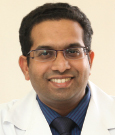ASCO International’s mission is to optimize care for every patient with cancer in the world. To achieve that goal, it is critical to establish collaborations in all sectors of the health-care system. ASCO International’s newest course, Cancer Control in Primary Care, helps to address this need by offering primary health-care providers with practical and specific knowledge that can be put into daily practice. The course was hosted in India, for the first time, this March.In the following interview, we speak to Prince John, MBBS, MPAC, about the course and how it will help evolve cancer care in the region.
How would you describe the current state of cancer care in India?
Cancer care in the country is developing at a very fast pace. There are more than 250 comprehensive cancer centers. In fact, partial treatments such as surgery, chemotherapy, and radiotherapy are offered at even more places. For instance, there are more than 300 radiation facilities in India—some of which function in the absence of a comprehensive center. Treatment is offered at government institutions, private hospitals, and not-for-profit organizations.The distribution of the cancer facilities is, unfortunately, not uniform. Around 85% of these centers are situated in and around the major cities, thus leaving a major gap in services throughout the country. Per the World Health Organization’s requirement, there is still a need for many more centers.
What are your goals for the Cancer Control in Primary Care course?
The main goal of the course is to bring knowledge of early detection and prevention to primary physicians. We have selected the trainees who are working at primary-level district hospitals. These doctors are part of the primary health-care system of the government, and hence, act as the first point of contact for a large number of patients. However, many of these physicians lack the necessary skills in prevention and screening. The majority of patients from these regions are from low-income populations and really deserve better care.
How do you hope to use this opportunity to further develop cancer care?
The state of Madhya Pradesh in central India has already embarked on a unique project of cancer care delivery at the grassroots level. This additional knowledge of early detection will help cure more patients and offer standardized treatment to all. We envision the program as being the beginning of a new approach to provide knowledge and skills to doctors practicing at the grassroots level—thus, easing the pressures of the tertiary centers, where these efforts are being focused currently.
Dr. John is a Palliative Care Consultant at the Asian Institute of Oncology. Following his MBBS training, he worked in the Department of Palliative Medicine at Tata Memorial Hospital. For the past 9 years, Dr. John has devoted his career to palliative care and is one of the first full-time palliative medicine practitioners in private practice in India. ■
Originally printed in ASCO Connection. © American Society of Clinical Oncology. “New ‘Cancer Control in Primary Care’ Courses Offered in India.” ASCO Connection, March 2015: 25. All rights reserved.


